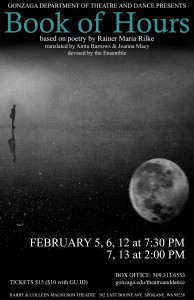Book of Hours
Based on poetry by Ranier Maria Rilke
Translated by Anita Barrows & Joanna Macy
Devised by the Ensemble
Gonzaga University
Magnuson Theatre
February 2016
View an video excerpt of the production here.
Production Team:
Director & Sound Design – Charles M Pepiton
Set/Lighting Design – Courtney Smith
Costume Design – Leslie Stamoolis
Movement Specialist – Alexandra Kazazou
Dramaturge – Colleen McLean
Technical Director – Abbey Plankey
Stage Manager – Emily Anne Davidson
Ensemble:
Briar Burt
“Sarah” Bo Youn Chae
Jaron Fuglie
Daniel James
Madeline Keckler
Kevin McCarthy
Julia Regalbuto
Elizabeth Spindler
Photos by Morgan Willie
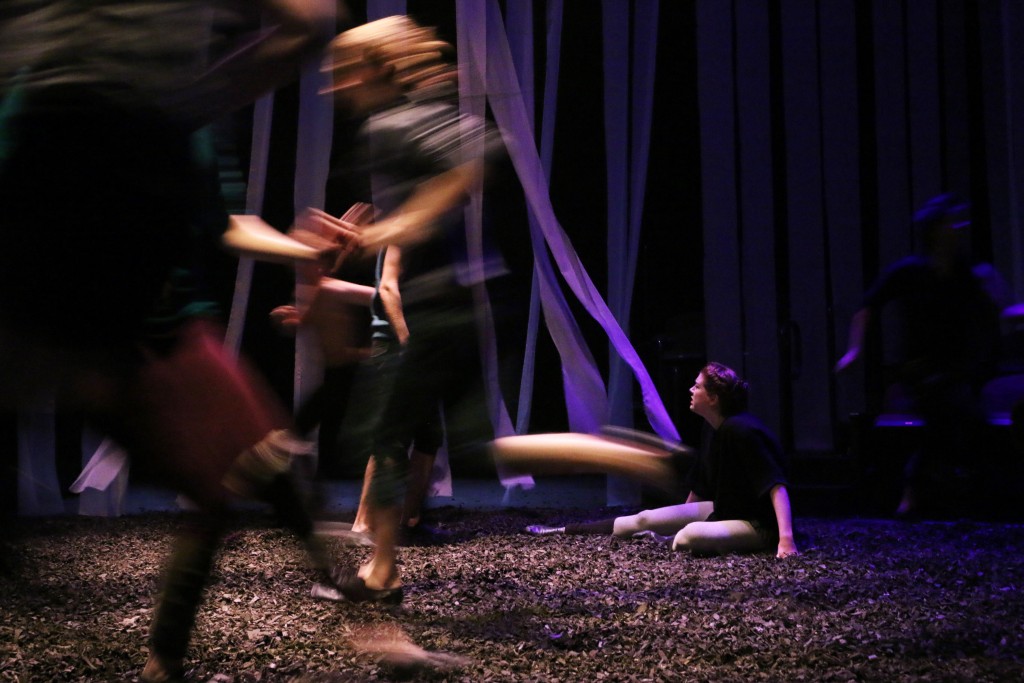
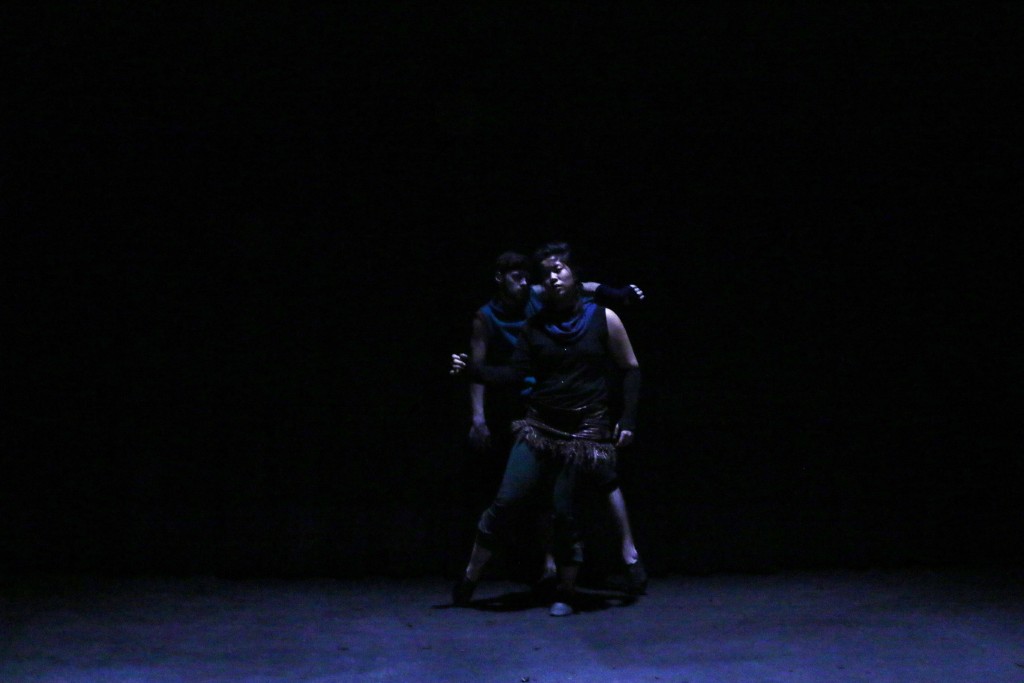
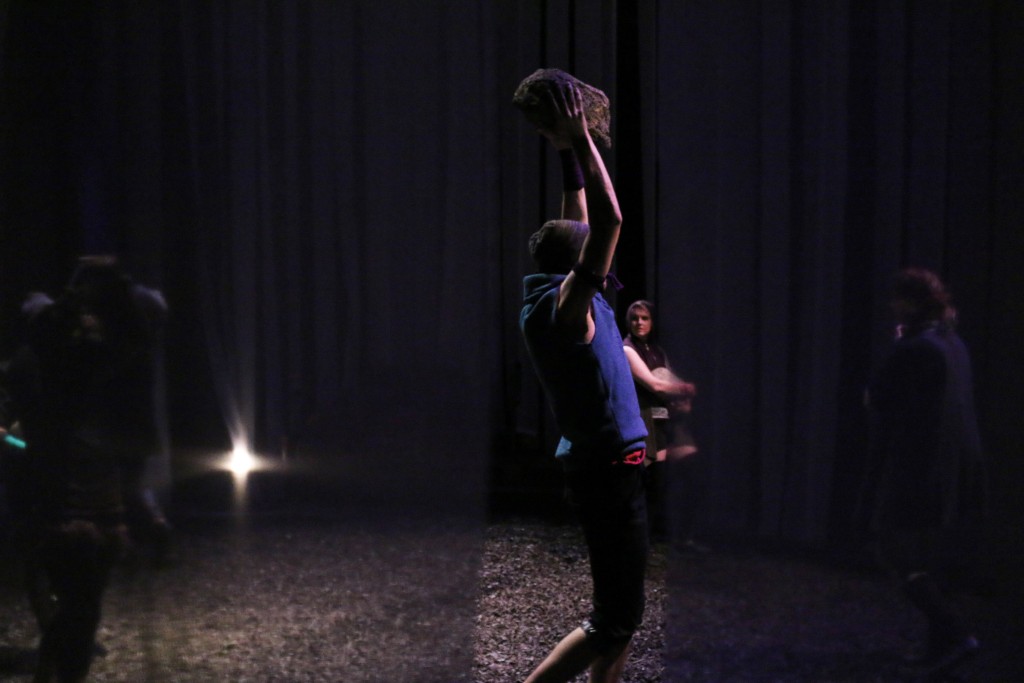
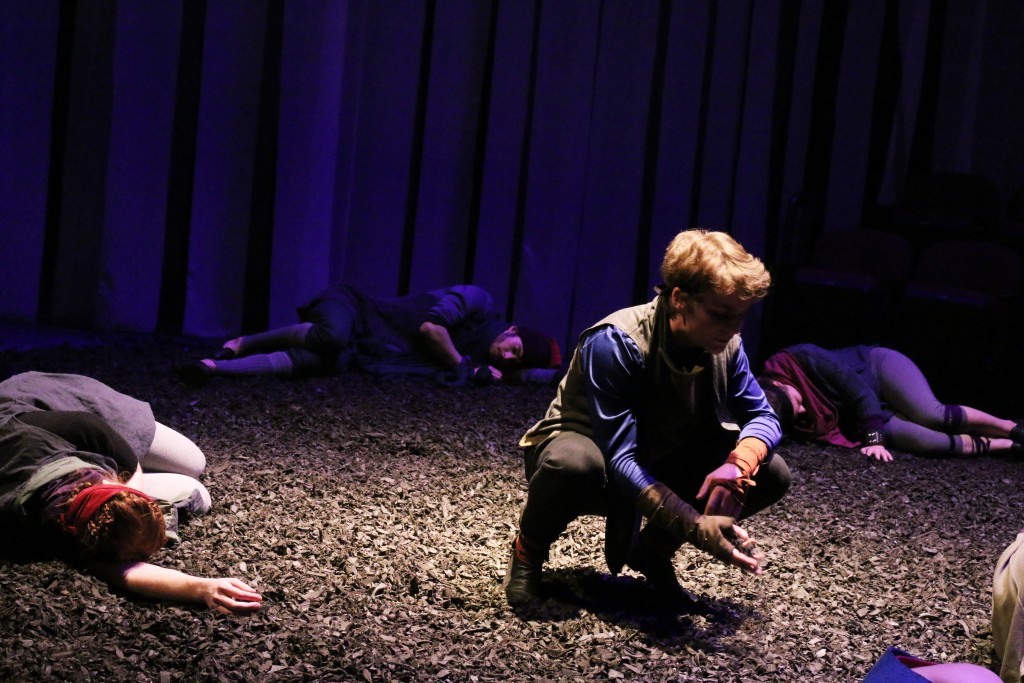
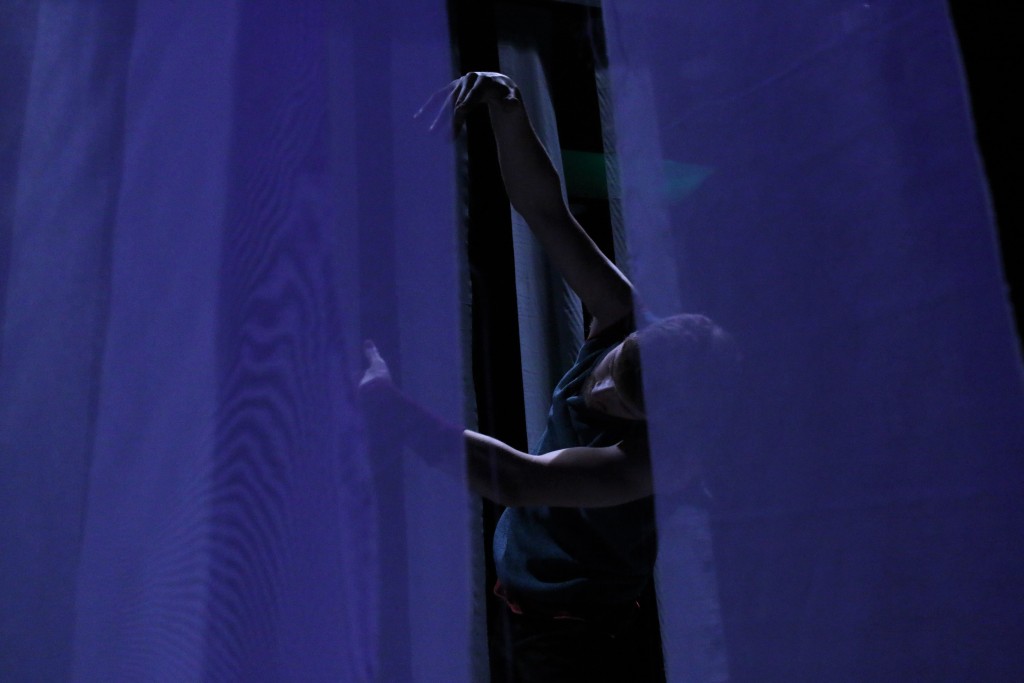
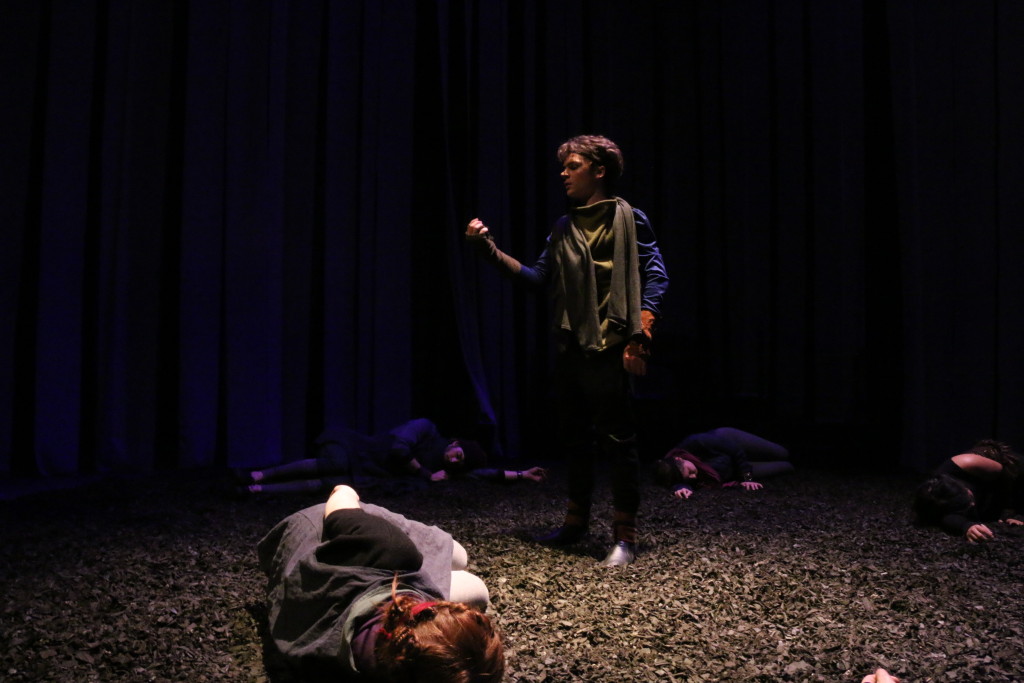
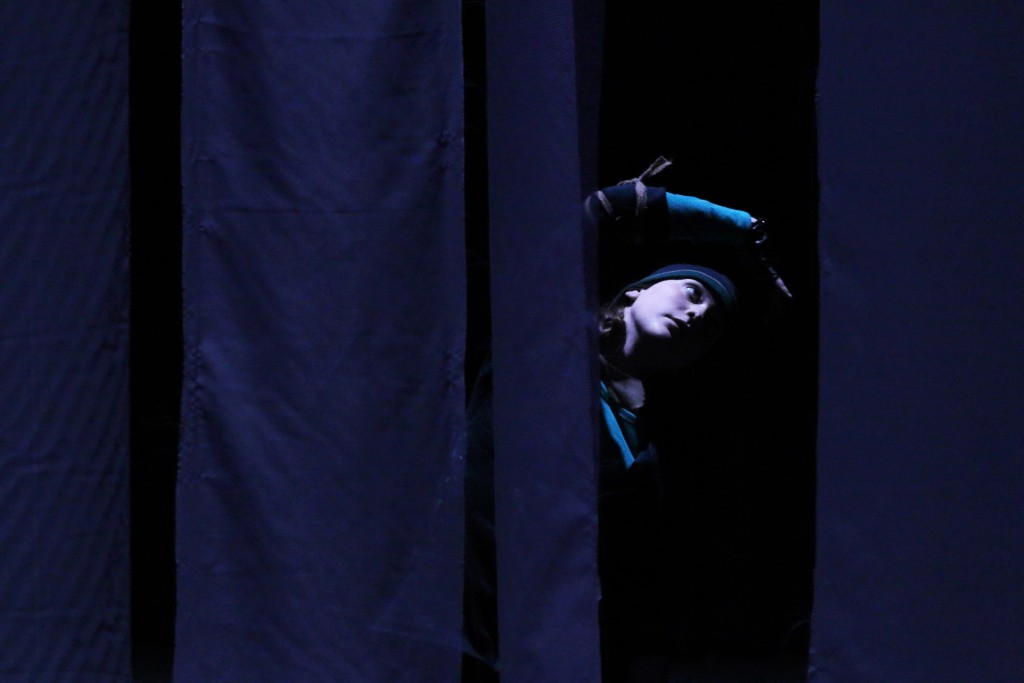
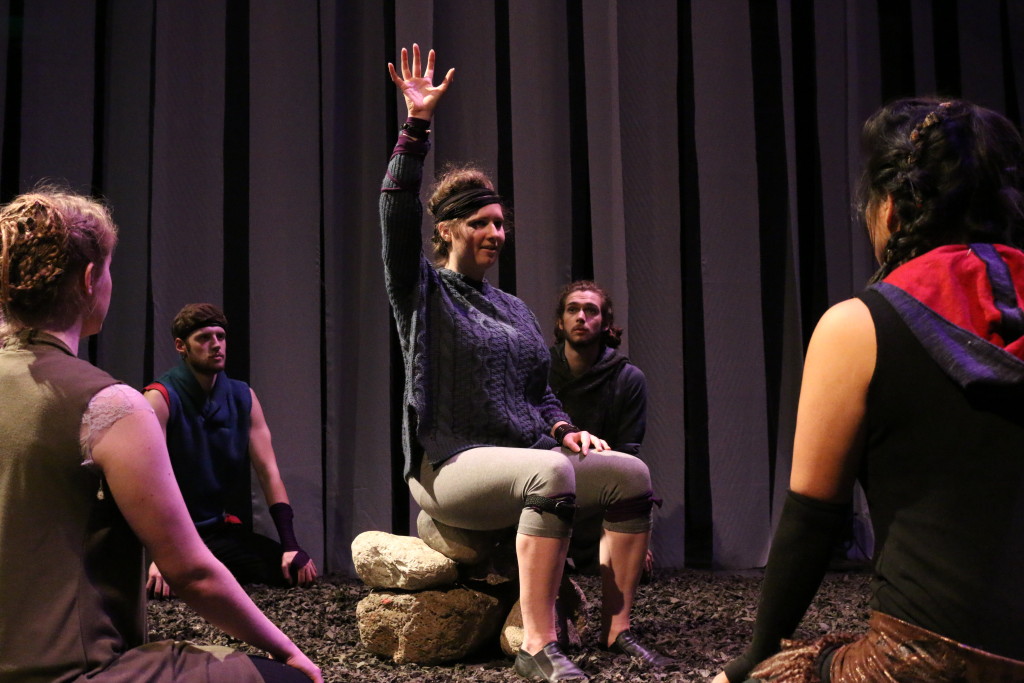
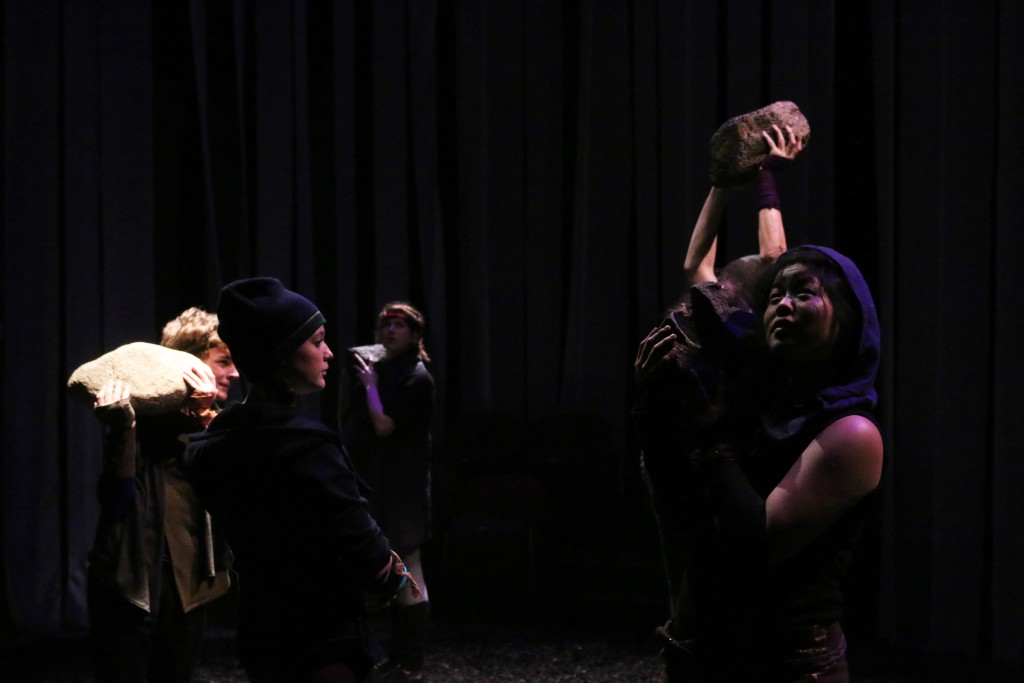

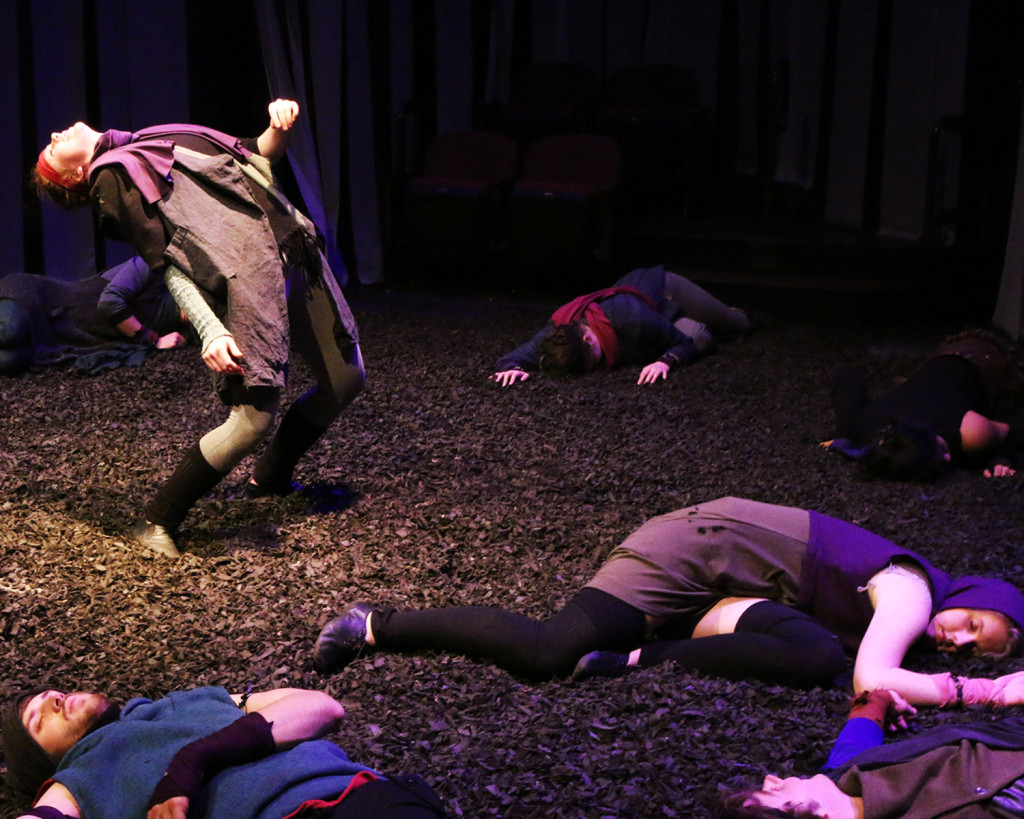
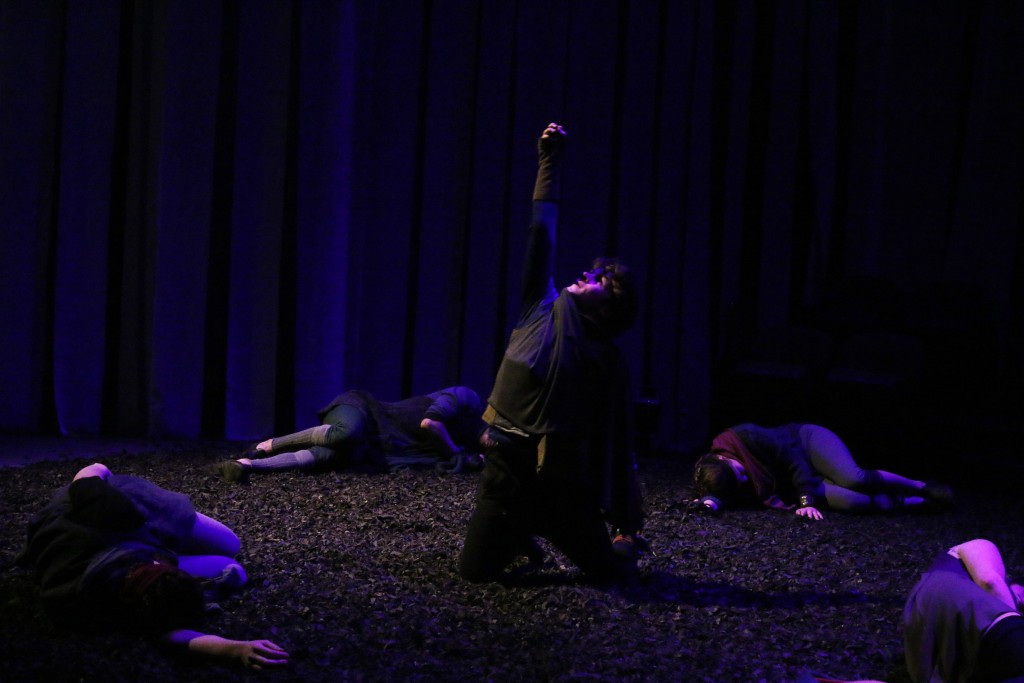
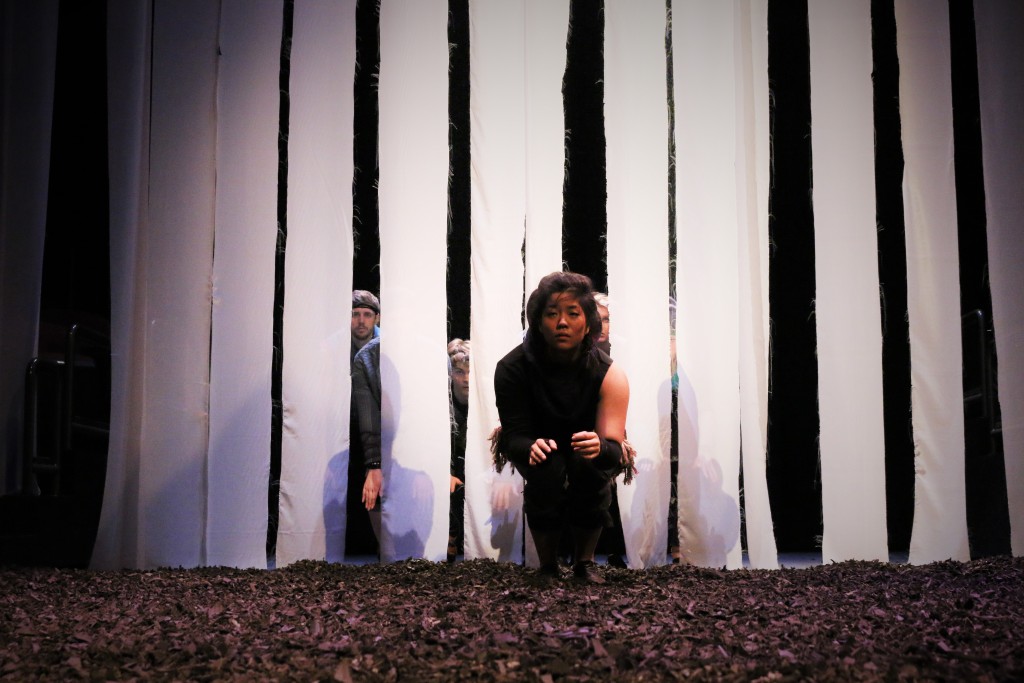

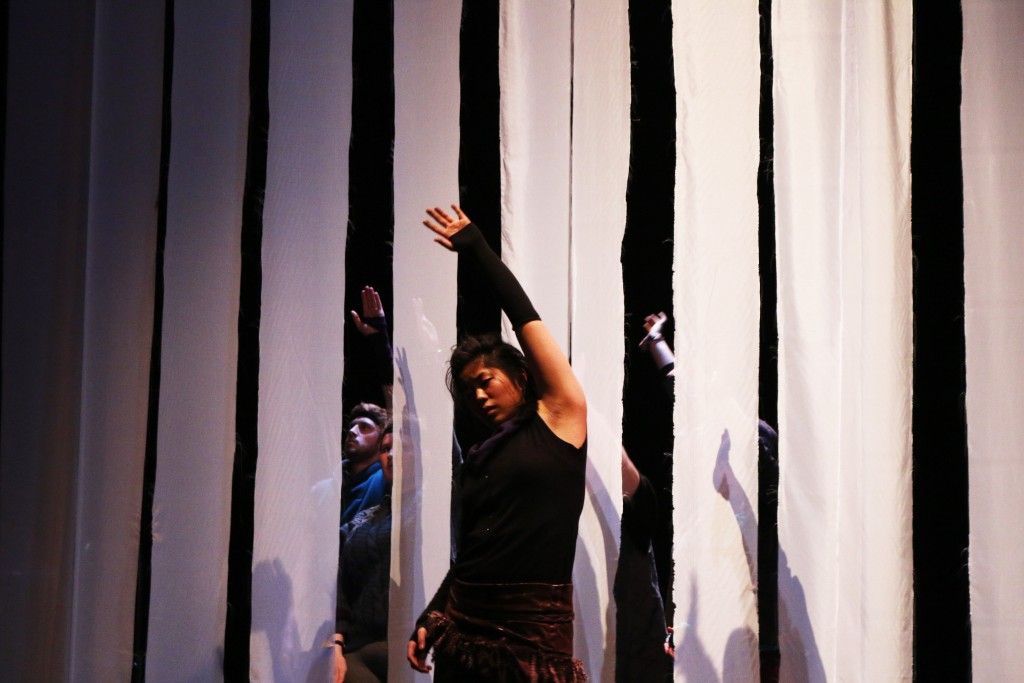
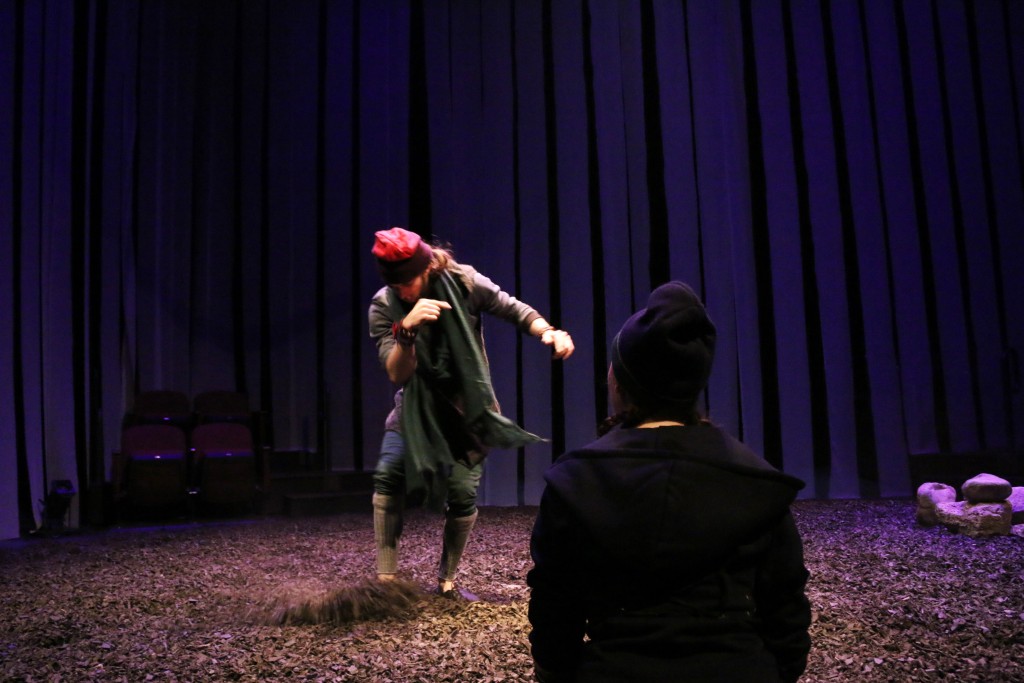
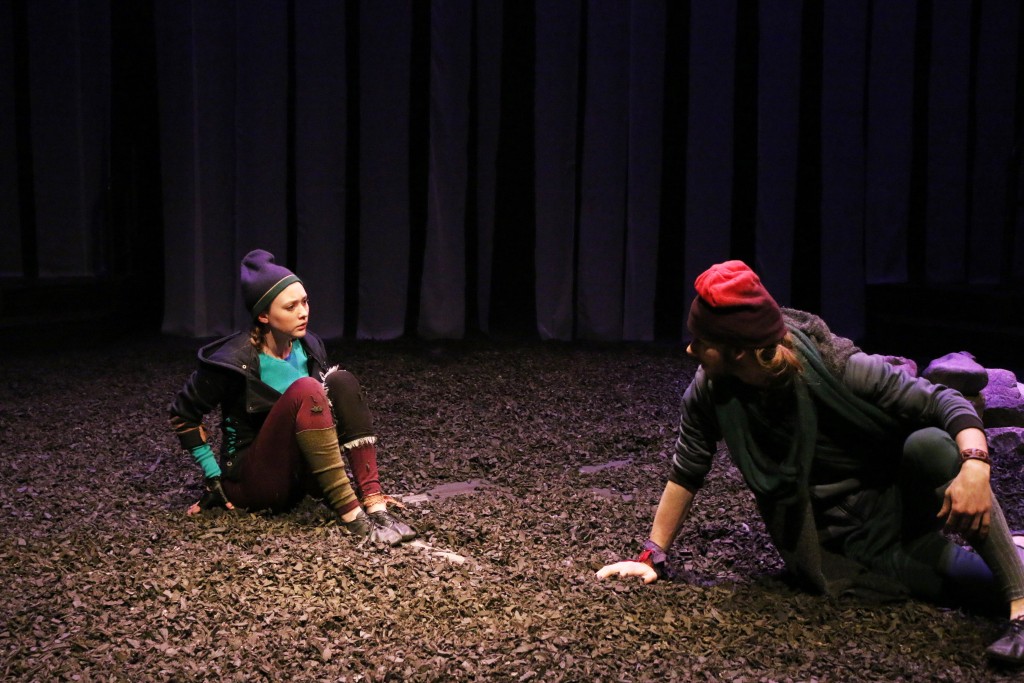
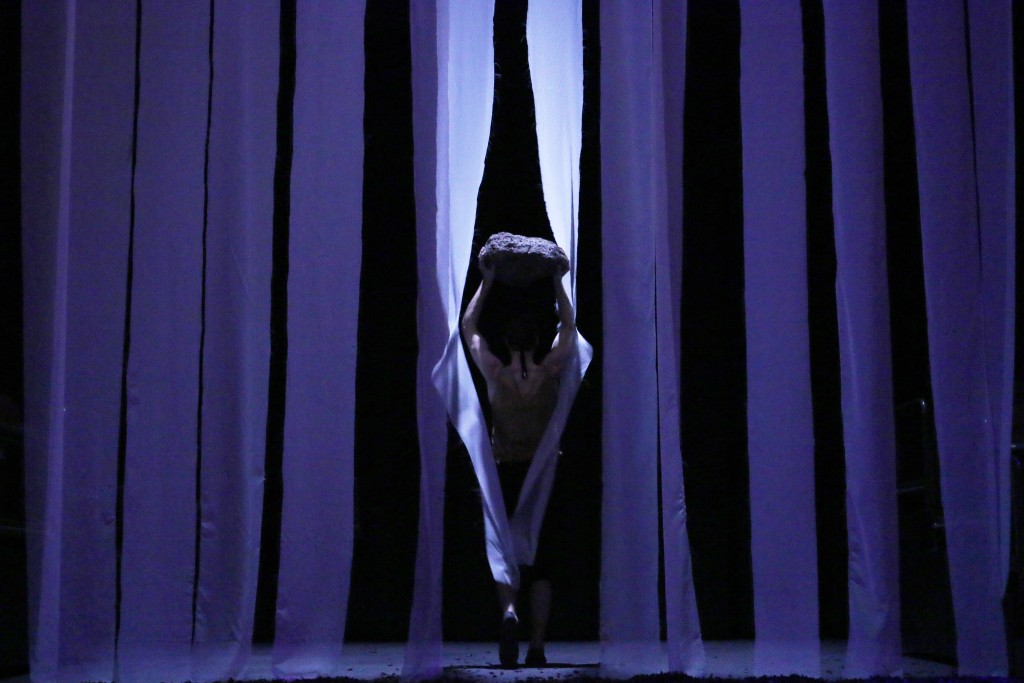
Program Notes
Pilgrimage (n) /ˈpɪl·ɡrə·mɪdʒ/: a trip made to a sacred place for spiritual reasons.
Book of Hours represents one stop on a pilgrimage—Rilke’s, the ensemble’s, and if you like, yours as well. I first read these poems as a college freshman. They moved me immediately. I felt a deep connection with Rilke’s search for fresh, workable metaphors and an understanding of the divine that resonates in a volatile world.
In September 2015, the ensemble began this expedition with the goal of creating a theatrical event from Rilke’s collection of poetry. We participated in Gonzaga’s 46th Pilgrimage to the Cataldo Mission. We wrestled with Rilke’s words and meditated on his continued relevance with translator Joanna Macy. We considered his historical context in light of our own with dramaturge Colleen McLean. We contemplated Rilke’s philosophical influences and lineage with GU philosopher Clayton Bohnet.
And because no good pilgrimage is disembodied, a shared practice of physical training has been a mainstay throughout our process. Our common training methodology stems from my experiences with Poland’s Studio Matejka and the Massachusetts based Double Edge Theatre. For three rigorous weeks in November, we trained together with Polish guest artists Alexandra Kazazou and Karol Jarek.
All of this has been a part of what is known as a devised process.Though devising is an ancient way of creating theatre and common elsewhere in the world, we are experiencing a timely renaissance of devised performances in the American theatre. In short, devising is when a group of collaborators create theatre together from a common source of inspiration, often a non-theatrical source. In the end, some devised work looks much like any other text-based theatre, yet other devised work moves fluidly between genres, exploring the borderlands between artistic disciplines. Above all, devised processes feature a far more egalitarian creative structure than “traditional” theatre processes where a playwright or director leads from the top. In our process, regardless of title each member of the ensemble has played many parts along the way: actor, literary critic, researcher, choreographer, designer, and director.
Now, we welcome you to join us in wrestling with Rilke’s questions. We welcome you as companions on the journey.
“The theatre is the last forum where idealism is still an open question: many audiences all over the world will answer…that they have seen the face of the invisible through an experience on the stage that transcended their experience in life.” – Peter Brook, “The Holy Theatre”, The Empty Space (1968)
- February 5, 2016 – Spokane Public Radio: Gonzaga Theatre & Dance Presents Book of Hours (Audio)
- September 17, 2015 – Gonzaga Bulletin: The Book of Hours Takes the Stage
